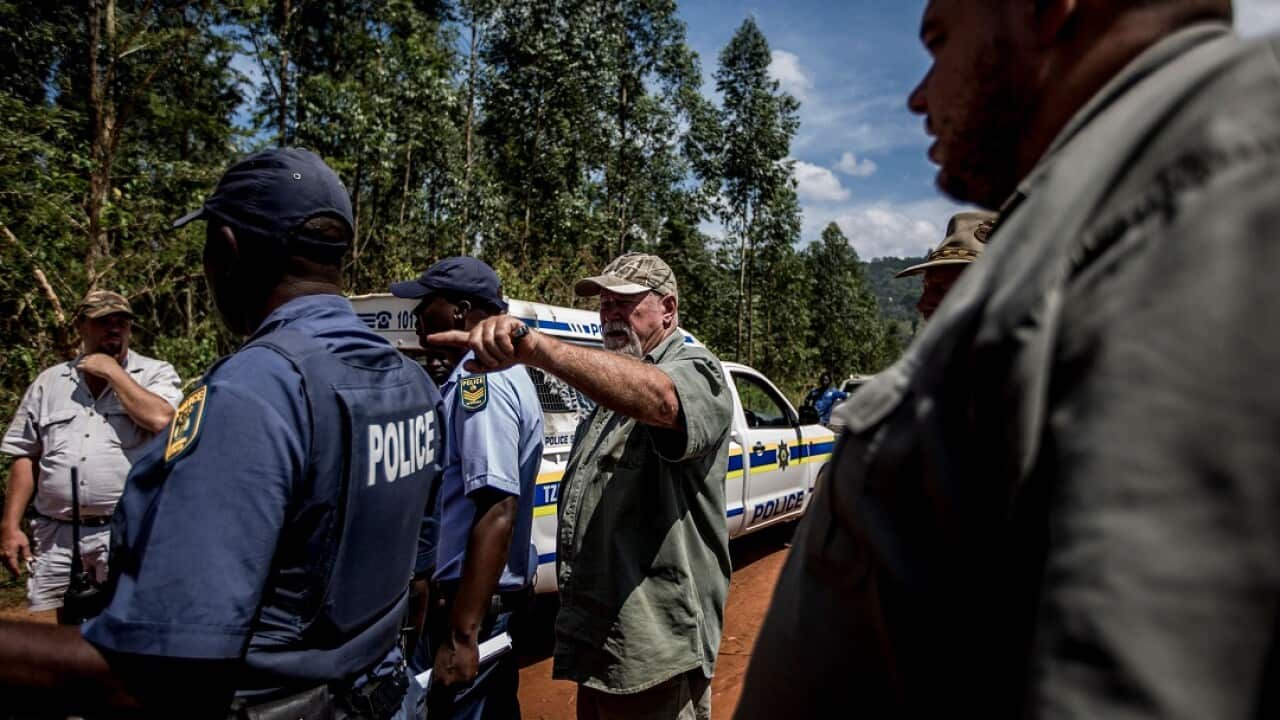A South African court on Wednesday ruled that displaying the country's apartheid-era flag in public constituted hate speech that discriminated against black people and violated equality laws.
The case relates to a 2017 demonstration against attacks and killings of farmers where the so-called 'Apartheid Flag" was displayed.
The protest was led by predominantly white, Afrikaner nationalist groups.

Supporters of the Afrikaner Resistance Movement display an old South African flag, an old Afrikaner "Vierkleur" flag and swastika-like flags in 2004. Source: AAP
After public anger at the display of the flag, the Nelson Mandela Foundation applied for an order declaring "gratuitous display" of the flag as hate speech, unfair discrimination and harassment based on race.
"It is determined that the display of the old national flag of South Africa ... constitutes hate speech in terms of 10.1 of the equality act... (and also) unfair discrimination on the basis of race .. and harassment," said Judge Phineas Mojapelo.
Two Afrikaans lobby groups, AfriForum and the Federation for Afrikaans Cultural Societies, had argued that banning the flag would encroach on freedom of expression.
The 'Apartheid Flag' comprises horizontal blue, white and orange bands with three small flags - of Britain, the Orange Free State and the South African Republic - in the middle.
It was replaced with South Africa's current multi-colour 'Rainbow Flag' - in 1994 with the end of apartheid.
In his ruling, Mr Mojapelo said the order did not ban the display of the flag outright but confined it to artistic and journalistic displays, whose merits could be challenged in court.

Nelson Mandela Foundation's CEO, Sello Hatang, speaks to the press on the steps of the Johannesburg High Court. Source: AAP
The 'Apartheid Flag' actually pre-dates the formal promulgation of apartheid laws in 1948 by the then-ruling National Party, having been adopted in 1928.
The adoption of South Africa's new flag was followed by the adoption of a constitution with laws dealing explicitly with the racism and discrimination that had characterised the country for centuries.
But 25 years after segregation and white minority rule under apartheid was officially ended through a negotiated settlement, South Africa is still grappling with racial tensions that, with the growing use of social media, have become more visible.
In 2018, a white woman, Vicky Momberg, was sentenced to three years in prison after a video of her using a racial slur 48 times was widely circulated on social media.
Share


